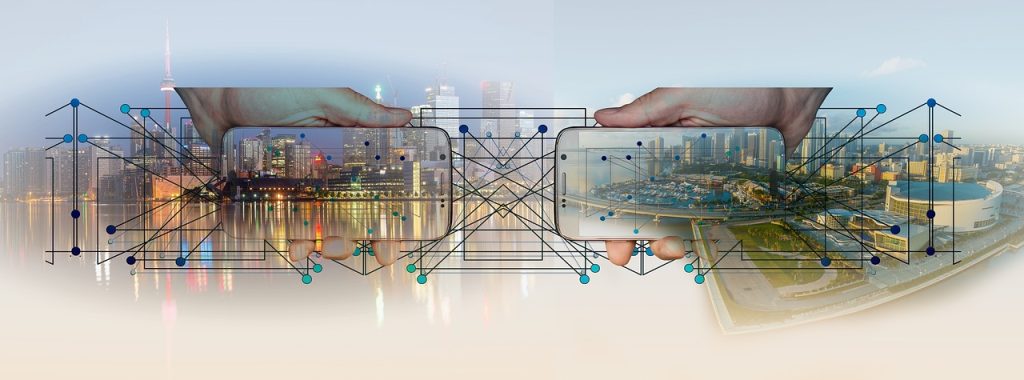
The world of technology is evolving at a breakneck pace, and staying informed is more crucial than ever. From artificial intelligence to blockchain, these emerging technologies are not just buzzwords; they are set to revolutionize the way we live and work. Imagine a world where machines can think and learn, where transactions are secure and transparent, and where computing power is virtually limitless. Sounds like science fiction, right? Well, it’s not! These advancements are already here, and they promise to reshape industries, economies, and our daily lives.
Let’s dive into some of the most groundbreaking technologies making waves today. Artificial Intelligence (AI) is transforming sectors from healthcare to finance, enabling faster decision-making and improved customer experiences. Blockchain is not just for cryptocurrencies; it’s enhancing transparency and trust in supply chains. Meanwhile, quantum computing is on the horizon, poised to solve complex problems that are currently beyond our reach. The potential for efficiency and innovation is staggering!
But what does this mean for jobs? As technology advances, it reshapes the job market in profound ways. While some roles may become obsolete due to automation, new opportunities will emerge that require different skill sets. It’s a bit like a game of musical chairs; the music is changing, and those who adapt will find a seat. Workers will need to embrace lifelong learning and adaptability to thrive in this new landscape.
As we embrace these innovations, we must also address the growing concerns surrounding data privacy and cybersecurity. With more data being generated than ever before, protecting personal and organizational information is paramount. Companies must invest in robust security measures and educate their employees about potential threats. It’s a digital jungle out there, and vigilance is key!
Interestingly, technology also holds the key to a more sustainable future. Innovations in renewable energy, waste reduction, and smart city initiatives are paving the way for a greener planet. Imagine cities powered by clean energy, where waste is minimized, and resources are used efficiently. This is not just a dream; it’s a necessity for our survival.
Finally, education plays a pivotal role in preparing future generations for this tech-driven world. Traditional teaching methods are evolving, incorporating innovative approaches that foster critical thinking and creativity. Lifelong learning opportunities will become essential, ensuring that individuals can adapt to the ever-changing landscape of technology.
Emerging Technologies
As we stand on the brink of a technological revolution, like Artificial Intelligence (AI), blockchain, and quantum computing are not just buzzwords; they are the building blocks of our future. Imagine a world where machines learn and adapt faster than humans, where transactions are secured by unbreakable codes, and where complex problems are solved in seconds. This is not science fiction; this is happening now!
AI is transforming industries by enhancing efficiency and driving innovation. From healthcare to finance, AI algorithms are analyzing vast amounts of data to provide insights that were previously unimaginable. For instance, in healthcare, AI can predict patient outcomes and assist in diagnosing diseases, making it a game-changer in saving lives.
Blockchain technology is another revolutionary force. It offers a decentralized and transparent way to conduct transactions, ensuring that data integrity is maintained. This technology is not limited to cryptocurrencies; it has the potential to reshape supply chains, voting systems, and even identity verification. Think about it: a world where every transaction is secure and traceable, drastically reducing fraud and corruption.
Meanwhile, quantum computing is on the horizon, promising to solve complex problems at lightning speed. This technology could unlock breakthroughs in drug discovery, climate modeling, and even artificial intelligence itself. It’s like having a superpower that can tackle challenges that currently baffle our best computers.
In conclusion, as these technologies continue to evolve, they will not only enhance our daily lives but also reshape entire industries. Staying informed about these trends is crucial, as they will undoubtedly impact how we work, live, and interact with the world around us.
Impact on Employment
The rapid advancement of technology is reshaping the employment landscape in ways we could only dream of a decade ago. With innovations like artificial intelligence (AI), automation, and machine learning taking center stage, the job market is experiencing a seismic shift. It’s like watching a game of chess where the pieces are constantly moving, and the rules are being rewritten in real-time. But what does this mean for you and me?
First off, while some jobs are becoming obsolete, new roles are emerging that we never knew we needed. Think about it: just a few years ago, who would have imagined careers like data scientists or social media managers? These positions are now essential in our digital world. However, this transition also brings about a sense of uncertainty. As machines take over routine tasks, many workers may find themselves in a race against time to upskill or reskill. The demand for tech-savvy employees is skyrocketing, and those who can adapt will thrive.
Moreover, the automation of jobs raises a crucial question: Are we prepared for this shift? The answer lies in understanding the skills that will be in demand in the future. According to recent studies, the following skills are becoming increasingly valuable:
- Critical Thinking: The ability to analyze and evaluate information effectively.
- Creativity: Innovating solutions that machines cannot replicate.
- Emotional Intelligence: Understanding and managing personal and others’ emotions.
In conclusion, while the impact of technology on employment may seem daunting, it also opens doors to exciting opportunities. Embracing change and continuously learning will be the key to navigating this new terrain successfully. So, are you ready to adapt and thrive in the tech-driven workplace of tomorrow?
Data Privacy and Security
In today’s digital landscape, have become paramount concerns for individuals and organizations alike. With the rapid advancement of technology, we are witnessing an explosion of data generation, creating a treasure trove of information that is both valuable and vulnerable. Have you ever wondered how much of your personal information is floating around in cyberspace? From social media profiles to online shopping habits, our digital footprints are extensive and often expose us to risks.
As we embrace emerging technologies, the challenges surrounding cybersecurity are evolving. Cybercriminals are becoming increasingly sophisticated, employing tactics that can compromise sensitive data. For instance, phishing attacks and ransomware have surged, targeting unsuspecting users and businesses. According to recent statistics,
| Year | Phishing Attacks | Ransomware Incidents |
|---|---|---|
| 2020 | 1.5 million | 200,000 |
| 2021 | 3.1 million | 400,000 |
| 2022 | 4.5 million | 600,000 |
data breaches have increased by over 50% in the last two years alone!
To combat these threats, organizations must implement robust security measures. This includes adopting advanced encryption methods, regular software updates, and comprehensive training programs for employees on recognizing potential threats. Additionally, individuals can protect themselves by using strong, unique passwords and enabling two-factor authentication wherever possible. It’s like locking your front door and installing a security system; you wouldn’t leave your home unprotected, would you?
As we navigate this tech-driven world, staying informed about data privacy regulations, such as the GDPR and CCPA, is crucial. These laws are designed to safeguard personal information and empower users with control over their data. In a nutshell, understanding your rights and the measures in place to protect your information is not just smart—it’s essential. The future may be bright with technology, but it also demands vigilance in protecting our most valuable asset: our data.
Sustainability and Tech
In today’s world, the intersection of sustainability and technology is more crucial than ever. As we grapple with the effects of climate change and environmental degradation, innovative tech solutions are rising to the occasion, offering us a glimmer of hope. Imagine a world where our energy is not only renewable but also efficiently managed through smart technologies. This is not a distant dream; it’s happening now!
Technologies such as renewable energy systems, smart grids, and IoT (Internet of Things) devices are paving the way for a greener future. For instance, smart grids optimize energy distribution, reducing waste and ensuring that renewable energy sources like solar and wind are harnessed effectively. Similarly, IoT devices can monitor energy consumption in real-time, helping households and businesses make informed decisions about their energy use.
Moreover, tech innovations are not just about energy. They also play a vital role in waste reduction and management. For example, advanced recycling technologies can transform waste into valuable resources, significantly cutting down on landfill use. Additionally, smart city initiatives are emerging globally, utilizing data and technology to enhance urban living while minimizing our carbon footprint. These initiatives focus on various aspects, including:
- Efficient public transportation systems
- Green building technologies
- Waste management systems
Ultimately, the potential for technology to drive sustainability is enormous. It’s not just about creating eco-friendly gadgets; it’s about rethinking how we live, work, and interact with our environment. As we embrace these technologies, we are not only investing in a sustainable future but also redefining the way we coexist with our planet. Are you ready to be part of this exciting journey?
The Role of Education
In a world where technology is advancing at lightning speed, education plays a pivotal role in preparing individuals for the challenges and opportunities that lie ahead. Think about it: just as a gardener nurtures plants to help them thrive, our education systems must cultivate skills that align with the demands of a tech-driven society. This means not only teaching traditional subjects but also integrating critical thinking, creativity, and digital literacy into the curriculum.
Moreover, the importance of adapting our educational frameworks cannot be overstated. As we embrace technologies like artificial intelligence and blockchain, educators must rethink how they deliver knowledge. Innovative teaching methods, such as project-based learning and hands-on experiences, are essential for engaging students and fostering a deeper understanding of complex concepts. For instance, imagine students working on real-world problems using coding and data analysis; they become not just passive learners, but active problem solvers.
Additionally, lifelong learning is becoming a necessity rather than a luxury. The job market is evolving, and so must our approach to education. Institutions should offer flexible learning paths that allow individuals to upskill or reskill throughout their lives. This can be achieved through online courses, workshops, and community programs that cater to diverse needs. In fact, a recent study showed that over 70% of professionals believe continuous education is crucial for career advancement in the tech field.
In conclusion, the role of education in our tech-driven future is not just about imparting knowledge; it’s about empowering individuals to adapt, innovate, and thrive in an ever-changing landscape. By embracing new teaching strategies and prioritizing lifelong learning, we can ensure that future generations are not only prepared for the jobs of tomorrow but are also equipped to lead and inspire change.





